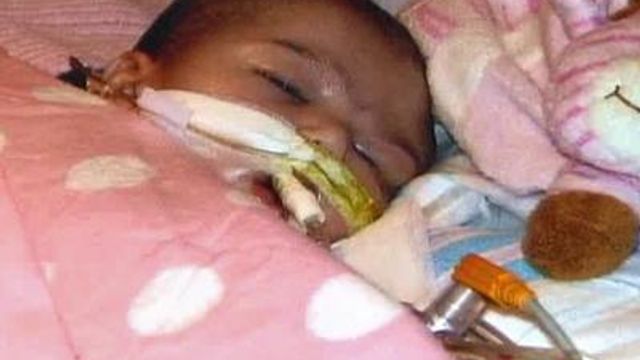Health Team
Whooping cough cases rise; preventable by vaccine
When Deborah Russo, of Charlotte, gave birth to her daughter, Ella, in October 2005, she was battling what she thought was a bad cold for several weeks.
Posted — UpdatedCHARLOTTE, N.C. — Whooping cough is making a comeback.
Before the pertussis, or whooping cough, vaccine was invented in the 1940s, there were 250,000 cases of whooping cough in the country each year. That had dropped to a thousand cases in 1976.
In 2004, however, the number of whooping cough cases was up to 25,000.
When Deborah Russo, of Charlotte, gave birth to her daughter, Ella, in October 2005, she had been battling what she thought was a bad cold for several weeks.
“Basically, I was just coughing,” Russo said.
Russo’s doctor said the severe coughing was a virus that would pass. Even Russo’s husband, Dr. Mark Russo, a liver specialist, wasn't too concerned. Then 2-week-old Ella, who was born healthy, started coughing.
“It was almost like she was clearing her throat … little barking noises,” Mark Russo said.
Dr. Brad Harris, a UNC Hospitals pediatric intensive care specialist, says the early symptoms of pertussis usually don't raise red flags.
"People don't perceive the urgency, let alone the severity of the disease, when it does strike", Harris said.
Soon, Ella started gasping for breath. The Russos brought her to UNC Hospitals, where Ella was placed in pediatric intensive care with whooping cough.
“They were basically telling us that she could die,” Mark Russo said.
Ella was placed on a ventilator, then a heart-lung machine. After 25 days, the tube in Ella’s neck artery caused serious bleeding. The Russos feared she might bleed to death, but were afraid to take her off the heart-lung machine. They eventually agreed to take her off of the machine.
“They shut off the machine. It was like a miracle,” Mark Russo said.
Ella’s condition improved. She stayed at UNC for several more weeks, but two years later she is doing fine.
“But for sure it's left a permanent scar on all of our brains – and this could have been prevented, just by getting a shot,” Mark Russo said.
Pertussis immunization is recommended for children 6 months and older. There's one combination vaccine that includes pertussis for children and another for adolescents and adults.
Without a booster shot, adolescents and adults are susceptible to the illness and could spread it to those most at risk – infants under 6 months of age, like Ella was when she was infected.
“You’re not getting this vaccination for yourself. You might live, you might be fine. But what about every child that you come in contact with?” said Deborah Russo.
Officials say a booster dose of Tdap vaccine is required for the following individuals:
- All students attending public school who are entering the 6th grade on or after August 1, 2008, if five years or more have passed since the last dose of tetanus/diphtheria toxoid.
- All students not attending public schools (i.e., private, home-school, non-traditional schools) who are 12 years of age on or after August 1, 2008, if five years or more have passed since the last dose of tetanus/diphtheria toxoid.
- Individuals enrolling in college or university for the first time on or after July 1, 2008, if a tetanus/diphtheria toxoid or tetanus/diphtheria/pertussis vaccine has not been administered within the past 10 years.
• Credits
Copyright 2024 by Capitol Broadcasting Company. All rights reserved. This material may not be published, broadcast, rewritten or redistributed.





